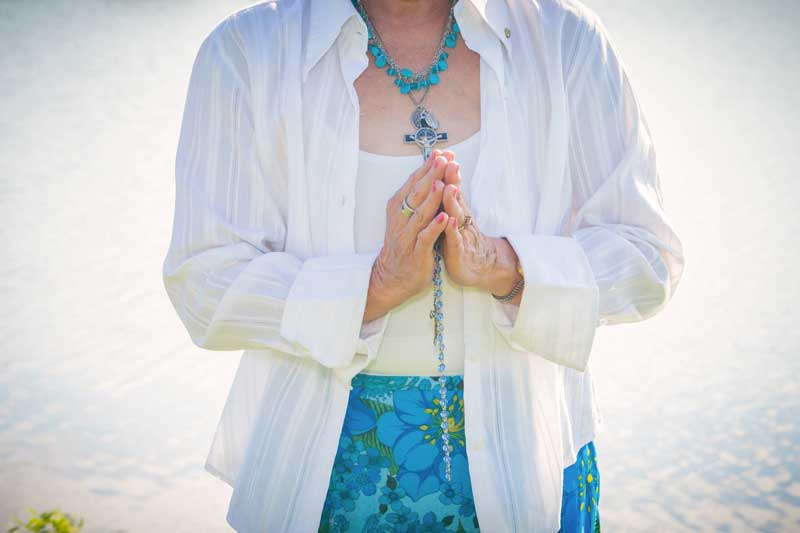
Does the First Amendment protect merely your right to choose your religion, and nothing more?
That’s what some government officials are claiming in the case Sause v. Bauer, in which First Liberty Institute is representing Mary Ann Sause and her right to pray in her home. First Liberty filed a brief on Thursday to refute the officials’ argument.
Sause was told to stop praying in her own home one night when police officers came to her apartment to investigate a noise complaint. Sause went before a local Kansas district court to contend that the order to stop praying in her home violated her First Amendment free exercise of religion. But the judge dismissed her claim.
REDEFINING RELIGIOUS FREEDOM
That’s when First Liberty got involved. In September, First Liberty and volunteer attorneys appealed her case to the U.S. Court of Appeals for the Tenth Circuit, claiming that the officers had violated her religious freedom rights by telling her to stop praying.
However, officials in Kansas recently responded with a brief that makes a stunning claim: They argue that “The First Amendment’s free exercise clause protects one’s right to choose a religion from government’s undue restrictions, but it is not an absolute or unrestricted right.”
“The implications of an argument like this are beyond dangerous,” said Kelly Shackelford, First Liberty President and CEO. “We are fully committed and determined to win this legal battle — not only for Ms. Sause, but for all Americans.”
“If this ridiculous argument becomes precedent — that the First Amendment merely gives you the right to choose your religion but not to practice it — then almost all freedom of religious expression in the United States will be lost,” he added.
“STOP PRAYING”
It was the night of November 22, 2013 when two police officers approached Sause’s door in response to a noise complaint from her neighbor, who said her radio was “too loud.”
According to Sause, the officers did not identify themselves, and she could not see them through her broken peephole. As a rape survivor, Sause never opens her door to anyone she can’t identify. So she ignored the knocking until the officers went away.
But the officers later returned to Sause’s home and demanded to be let in. When asked why she didn’t answer the door the first time, Sause held up her copy of the U.S. Constitution and the Bill of Rights. One officer laughed and said, “that’s just a piece of paper” and that it “doesn’t work here.”
Neglecting to inform Sause of the neighbor’s noise complaint, one officer told Sause she was “going to jail.” When Sause asked why, he said, “I don’t know yet.”
Frightened and traumatized, Sause requested the officer’s permission to pray. The officer acquiesced, and Sause knelt on her prayer rug to pray silently. But when the second officer saw her praying, he ordered, “get up” and “stop praying,” to which Sause complied. Rather than address the purported noise complaint, the officers continued to harass Sause.
The officers eventually issued Sause tickets for “Interference with Law Enforcement” and “Disorderly Conduct.” They said she was being cited for not answering her door when the officers first arrived.
Following the encounter, Sause reported the incident to the officers’ supervisors several times. Every time, she was ignored.
She filed a complaint with a district court in 2015, claiming that her First Amendment right was violated when she was ordered to stop praying in her own home. But the Court dismissed her complaints, claiming that the police officer’s order to stop praying did not “constitute a burden on her ability to exercise her religion.”
DANGEROUS AND UNCONSTITUTIONAL
First Liberty appealed the district court’s ruling on September 28, 2016 to say that the officer’s order to stop praying had indeed burdened her ability to exercise her religion.
The opponents filed their reply brief on October 31, incorrectly arguing that Sause’s First Amendment right was not violated since the First Amendment only protects the right to choose one’s religion.
First Liberty filed its second brief on behalf of Sause on Thursday, December 15, to refute their dangerous and unconstitutional argument.
“The First Amendment clearly protects the right to pray in one’s own home,” said Stephanie Taub, Associate Counsel for First Liberty. “That right is clearly established. No government official should prevent someone from exercising that fundamental right guaranteed by the U.S. Constitution.”
“And no one should claim that the protections guaranteed by the First Amendment merely allow one to choose their religion, and not exercise it freely,” Taub added. “There is absolutely no basis for that kind of thinking in the Constitution.”
First Liberty Institute is prepared to go as far as needed in this legal battle to protect Sause’s right to pray in her own home — and to prevent this dangerous new argument by the government officials from becoming precedent.
News and Commentary is brought to you by First Liberty’s team of writers and legal experts.